YouTube vs Podcasts in 2023: Which is Better for Building Your Personal Brand?
13 minutes read
podcastsplanningbusiness
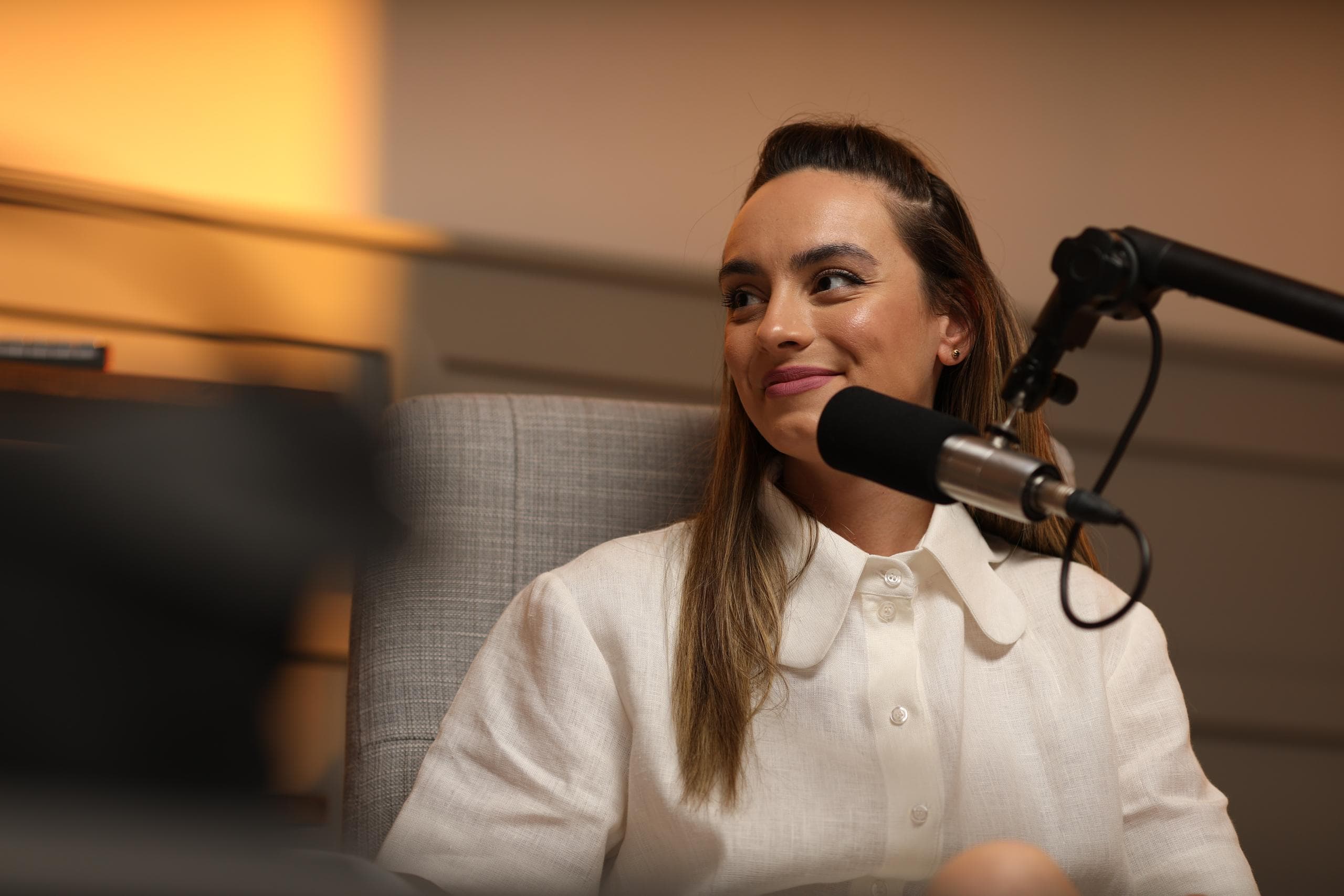
What is a Personal Brand and How Can You Create One?
Personal branding is the process of creating an identity for yourself and your business that will stand out from the competition. It involves creating a unique image, message, and style that reflects who you are and what you do. By developing a personal brand, you can establish yourself as an expert in your field, build trust with potential customers, and increase your visibility in the marketplace. With the right strategy and execution, you can create a strong personal brand that will help you reach your business goals.
Two increasingly popular ways of creating personal brands are podcasting and creating content for YouTube. In this article we will give you the information necessary to be able to decide for yourself which of the two formats better suites your needs (and how you might be able to do both at once).
Table of Contents
-
The Pros & Cons of Starting a Podcast to Build Your Personal Brand
-
The Pros & Cons of Starting a YouTube Channel to Build Your Personal Brand
-
How to Choose Between Podcasts and YouTube Channels for Building Your Personal Brand
- Start Building Your Personal Brand Today with the Right Platform!
Examples of personal brands
Podcasting
Some examples of personal brands in podcasting include:
- Tim Ferriss, host of The Tim Ferriss Show, who is known for interviewing successful people and sharing their stories and tips for success.
- Dr. Andrew Huberman, host of the Huberman Lab podcast discusses a wide range of topics from the lens of neuroscience and biology.
- Christine Hassler, host of the Over It And On With It podcast coaches callers live about relationships and life in general.
YouTube
Some examples of personal brands on YouTube include:
- Casey Neistat, a filmmaker and vlogger known for his creative and visually-stunning videos.
- CaptainSinbad is a popular YouTuber in the self-improvement niche focused on helping men reach their goals and succeed in life.
- Peter Zeihan talks about geopolitics on his channel and has made a big impact through his hot takes on future events.
The Pros & Cons of Starting a Podcast to Build Your Personal Brand
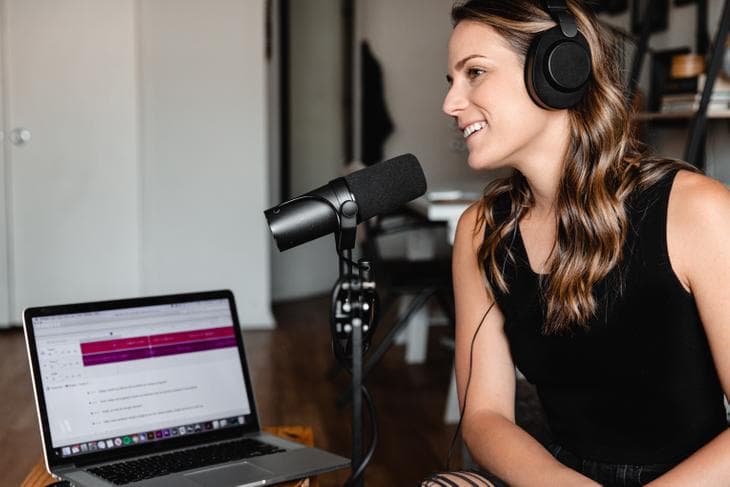
Starting a podcast can be an effective way to build your personal brand and reach out to a larger audience. Podcasting allows you to share your thoughts and experiences using your own voice, allowing you to make personal connections with your followers. Here’s an overview of the advantages and disadvantages of launching a podcast for personal branding purposes. ### Some of the advantages of starting a podcast include
- It allows you to reach a large and engaged audience, who can tune in to your show at their convenience e.g. while on their commute or while working out
- Podcasts are relatively inexpensive and easy to produce, so they can be a great way to get started if you're on a budget. In general, audio is significantly easier to produce than video. Audio production requires fewer equipment and personnel.
- Podcasts can help you establish yourself as a thought leader in your field by allowing you to share your knowledge and insights with others. There is a certain prestige that comes with speaking about a given subject in public. Also, it might you bragging rights with your friends 😉
- Podcasts allow you to build a personal connection with your audience by allowing them to "hear" your personality and allowing them to know you on a personal level.
- Podcasts are great for networking, as they can help you connect with other experts in your field, and can open up new opportunities for collaboration and partnership. This is especially true if you start an interview podcast.
However, starting a podcast can also have some downsides:
And some of the downsides...
- Even if producing audio is simpler than producing video, it still requires significant time and effort to create and maintain a podcast. You will have to make a new habit out it, and we humans are not so great at that.
- Podcasts take some time to gain a following, so you may need to be patient and persistent in order to see results. It might be a couple of months until you start seeing results. Delayed gratification will be rewarded though...
- Podcasts can be difficult to monetize if you are looking to monetize the podcast directly. However, if you are simply tying to market your own products or services then you can just monetize through those.
- Podcasting can be very competitive, you have to put great effort to stand out. Podcasting is still growing, so expect more and more podcasts to come up in the next couple of years. However, you can also tap into that growth for your own benefit.
- The audience for audio is smaller. According to a 2021 survey by the Pew Research Center, around 42% of American adults have listened to a podcast in the past month, while around 82% of American adults use YouTube. However, it might be the case that your target audience tends to consume more audio than video. It really depends on your industry and niche.
The Pros & Cons of Starting a YouTube Channel to Build Your Personal Brand
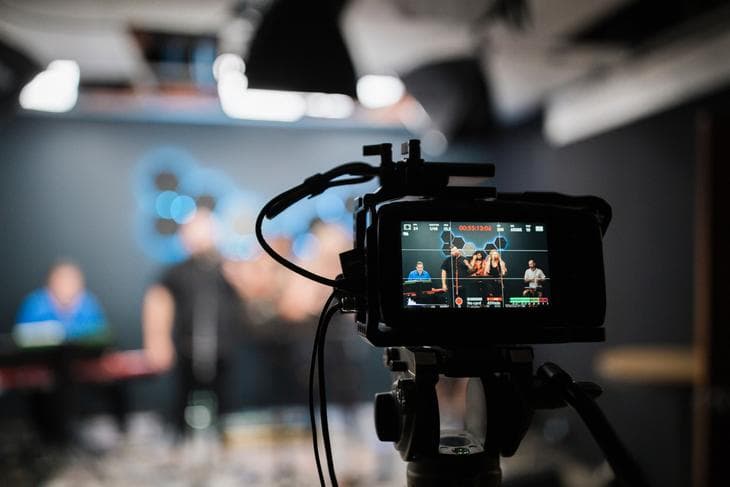
Starting YouTube channels has become extremely popular. Many, if not most YouTube channels, could be considered personal brands. Although podcasting is more popular than ever, YouTube is still way more familiar to most people. The video format is taking the world by storm. Nowadays, people expect more video than ever, with the written word and audio often being sidelined. However, that doesn't mean that YouTube is the best channel for everybody or that video always wins out.
Its important to also consider some of the cons so you can see if YouTube truly fits your needs when compared with an audio podcast. Here we will briefly explore the advantages and disadvantages of creating a YouTube channel for personal branding so that you can make an informed decision about whether it is the right move for you.
Some of the advantages of starting a YouTube channel include
- YouTube has a large and diverse audience, so you can reach a wide range of people with your content. Globally, YouTube has over 2 billion monthly active users, who watch over a billion hours of video on the platform every day. As of 2021, it is the second-most visited website in the world, behind only Google (which owns YouTube). YouTube's audience is also highly engaged, with users spending an average of 40 minutes per session on the platform.
- YouTube is a visual platform, so it's well suited for a variety of content types, such as tutorials, vlogs, and reviews. Some of these types of content would not be feasible through audio only.
- YouTube allows you to build a personal connection with your audience by allowing them to see your face and hear your voice, and also by allowing them to interact with you through comments and live streaming.
- YouTube has a built-in monetization system, so you can earn money from your channel through advertising and sponsored content. Although take into consideration that ads won't be enough for 99% of the people. For example, if you manage to generate around 10,000 video views per day, you would earn between $18 and $31 a day — which equals an annual income of between $6,000 and $11,000 per year.
- YouTube allows you to create a community of viewers and followers who are interested in your content and can help spread the word about your brand.
Starting a YouTube channel can also have some downsides
- YouTube can be very time-consuming. With increasing competition, in order to stand out you will have to put out very high quality visuals and content. Also, it requires great effort to maintain a channel. The algorithm greatly rewards consistent uploads, so you might feel pressure to be constantly creating content in order to stay on top.
- YouTube's algorithm can be unpredictable, so it can be difficult to grow your audience and get your content seen by more people.
- YouTube's monetization system requires a certain number of views, followers, and hours watched to start earning money, so it may take time before you see any financial return. Also, the financial return might not be enough to compensate for all the work you put in.
- YouTube's algorithm changes often, it's not guaranteed that you will maintain your audience once you've built it.
- YouTube's community can be harsh and cruel, you should be ready for some negative feedback.
- YouTube is owned by Google and its a proprietary closed platform. If you don't encourage your community to congregate in other spaces besides YouTube, you are at risk of future company decisions greatly impacting your personal brand. Whereas podcasting is open and decentralized, not owned by any single corporation.
How to Choose Between Podcasts and YouTube Channels for Building Your Personal Brand
Podcasts and YouTube channels are two of the most popular mediums for building a personal brand. But which one should you choose? It all depends on your goals and what kind of content you want to produce.
Podcasts are great for providing long-form audio content that is easy to listen to on the go. On the other hand, YouTube channels allow you to create visually appealing videos that can be used to engage with your audience in an interactive way.
The key is to determine which platform best suits your needs and then focus on creating quality content that resonates with your target audience.
Choosing between starting a podcast or a YouTube channel to build your personal brand depends on your goals, resources, and strengths. Here are some factors to consider when making your decision:
Audience
Consider the type of audience you want to reach, and which platform is best suited to reach them. Podcasts tend to be popular with people who are on-the-go and want to listen to content while they're driving or working out, while YouTube is more visual and tends to be more popular with a younger demographic.
Demographics
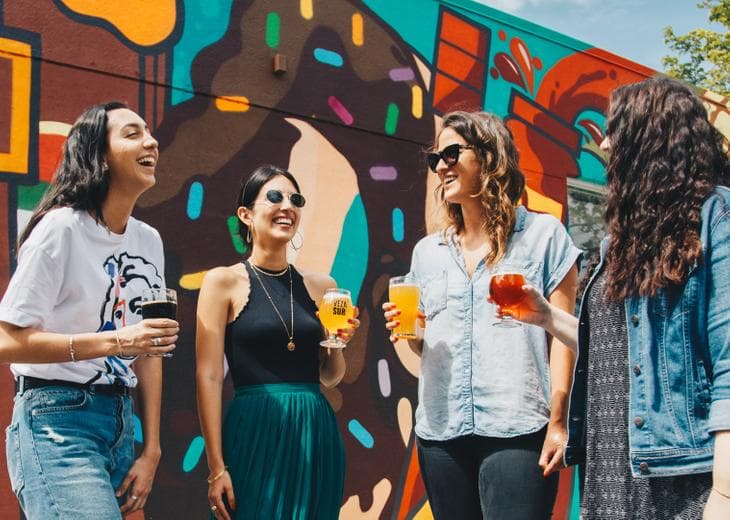
The demographics of podcast listeners and YouTube viewers can vary depending on the specific podcast or YouTube channel. However, in general, there are some key differences in the demographics of these two groups.
Podcast listeners tend to be higher earners compared to the general population. According to a 2021 survey by the Pew Research Center, around 38% of podcast listeners have an annual household income of $75,000 or more, compared to 24% of the general population. Additionally, podcast listeners tend to be more educated than the general population, with around 42% having a college degree or higher, compared to 33% of the general population.
YouTube viewers, on the other hand, tend to be younger and more diverse than podcast listeners. According to a 2021 survey by the Pew Research Center, around 73% of YouTube viewers are under the age of 50, compared to 57% of podcast listeners. Additionally, around 56% of YouTube viewers are non-white, compared to 40% of podcast listeners.
It's worth noting that the demographics of YouTube viewers and podcast listeners vary depending on the specific content and its topic. Some YouTube channels and podcasts tend to have a more specific target audience and therefore a specific demographic of viewers and listeners. Additionally, the popularity of podcasts and YouTube has been growing among a diverse group of listeners and viewers, and the demographics of both have become more diverse over time.
Content type
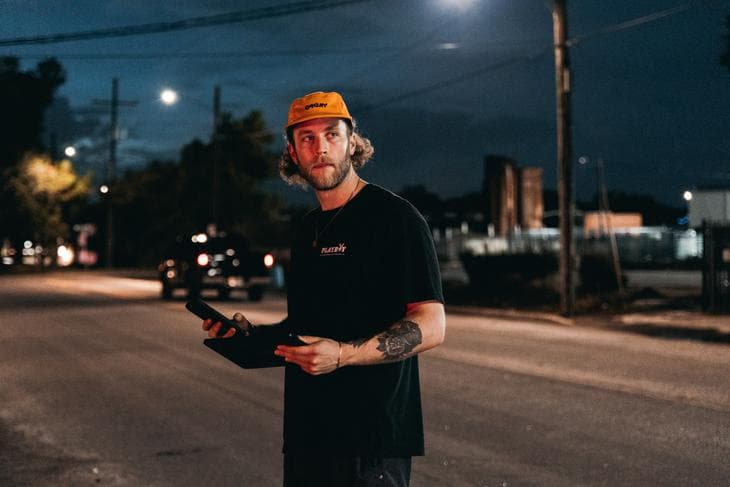
Consider the type of content you want to create, and which platform is best suited for that type of content. Podcasts are well-suited for long-form interviews and discussions, while YouTube is better for shorter, more visual content, such as tutorials or vlogs. Having said that, its now also very common to see video versions of audio interviews posted on YouTube. Something important to take into consideration is how much time do you have to produce content. If you are short on time, audio might better for you as it takes less time to produce quality audio and quality video.
Resources
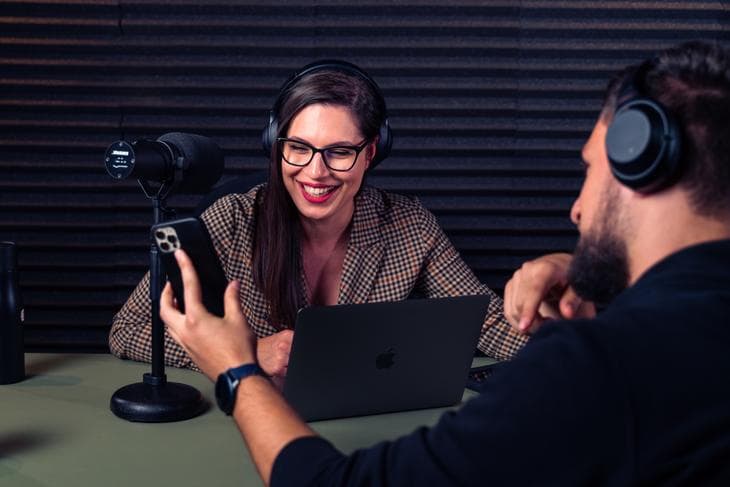
Consider the resources you have available, such as equipment, editing skills, and time. Podcasts can be relatively inexpensive and easy to produce, while YouTube channels require more equipment and editing skills.
Its easy to create videos with just your phone, but to be competitive you have to produce high quality good looking videos which can require more equipment.
On the other hand, recording high quality audio is quite inexpensive. Just recording on a quite room with decent acoustics using your Mac or iPhone and then doing a bit of post production can result on quality audio. Furthermore, if you decided to invest on a microphone, you can get an entry-level professional microphone for less than a $100 dollars USD whereas the costs of a camera would be significantly higher. One example of such a microphone is the Blue Yeti USB condenser microphone.
Monetization

How you are looking to monetize your personal brand is a crucial question. If you are looking to directly sell your own products and services then you don't need to worry much about directly monetizing the content. What you would be doing is essentially content marketing.
However, if you are trying to monetize your content directly the things are different.
YouTube has a built-in monetization system, while podcasting can be more difficult to monetize. However, be aware that the vast majority of YouTubers are not able to make a living only from the payments they receive for their content on YouTube. They also need to participate on a number of other activities such as:
- Make announcements (ads) for sponsors
- Monetize access to communities of followers on services such as Patreon
- Sell merchandise
- Sell access to exclusive content
- Sell other services or products e.g. consulting, coaching, courses
In this regard, both podcasting and YouTube are similar. Although YouTube has an edge on the money you are able to earn automatically through the platform, in the end for both podcasts and YouTube you will have to put plenty of effort into monetization using your own home grown efforts.
Personal preference
Consider your own strengths, interests, and preferences. If you're more comfortable speaking than being on camera, a podcast may be a better fit. On the other hand, if you enjoy being on camera and you feel more confident that way, then a YouTube channel may be the best choice.
It's also worth noting that you don't have to choose just one, you could also consider starting both a podcast and a YouTube channel to reach different audiences and appeal to different preferences.
One popular format nowadays is for interview podcasts to publish on podcasting apps such as Apple Podcasts and Spotify while also uploading video versions of the interviews to YouTube.
Start Building Your Personal Brand Today with the Right Platform!
Building a personal brand is almost a necessity in today’s digital world. It’s the best way to stand out from the crowd and make sure you are seen and heard. But it can be difficult to know where to start when it comes to building your personal brand. That’s why having the right platform is essential. With the right platform, you can create an effective strategy that will help you reach your goals and build a powerful personal brand. If you are thinking of starting a podcast, please consider our own service, Caproni, which is built with an optimized workflow tailored for small business and individuals looking to save time while maximizing reach.